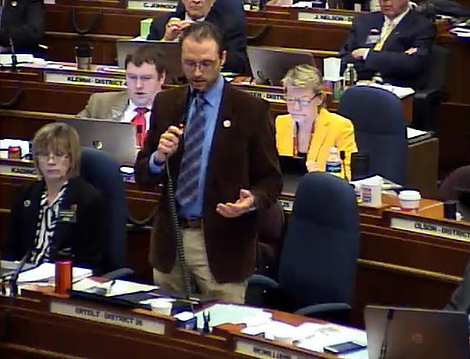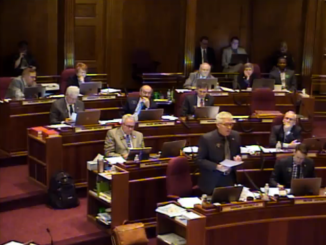
A hot topic in a few areas of the state recently has been that of school bonds. The communities of Fargo, Bismarck, and Stanley all had bond votes Tuesday. Fargo and Bismarck passed theirs with flying colors. Stanley’s bond went down in flames though with nearly 76% voting in opposition to it.
Rep. Kathy Skroch (R – District 26) wants to limit the ability of local school boards to continually propose bond measures. If you’re not familiar with them, bond votes are placed on the ballot for the people to determine if they want to incur debt for proposed improvements and/or additions to schools. If passed, the debt is tacked onto property tax bills of those in the school district.
There are two frequent complaints about bond votes. First, is that school districts often hold special elections to have them. Anybody familiar with politics knows that special elections mean low voter turnout, which often favors the school district. Second, is that school districts often "wear down" their voters by repeatedly proposing the bonds until voters capitulate.
House Bill 1435 originally sought to limit school bond votes to general elections only. As you can imagine, school districts came out in strong opposition to the idea saying that doing so would hamper their ability to complete projects in a timely manner.
As a matter of compromise, the House Political Subdivisions Committee amended the bill prior to its going to the floor. With the amendment in place, the bill now permits school districts to hold bond votes "no more than two times in an odd numbered year, and a school bond issue placed on the ballot in an even-numbered year must be placed on the ballot at a statewide primary or general election."
It’s really too bad the bill was amended. Yet, I suppose even the current bill is better than the current method of districts being able to repeatedly place bond votes up in one form or another after they’ve been defeated.
Rep. Sebastian Ertelt (R – District 26) carried the bill to the floor where he said the amendment still provides flexibility to the district while not wearing down the voter. The bill easily passed the house with a 72-17 vote. It now goes to the Senate where it will be heard by the Senate Education Committee.
Source:
1. http://www.legis.nd.gov/assembly/65-2017/bill-actions/ba1435.html





